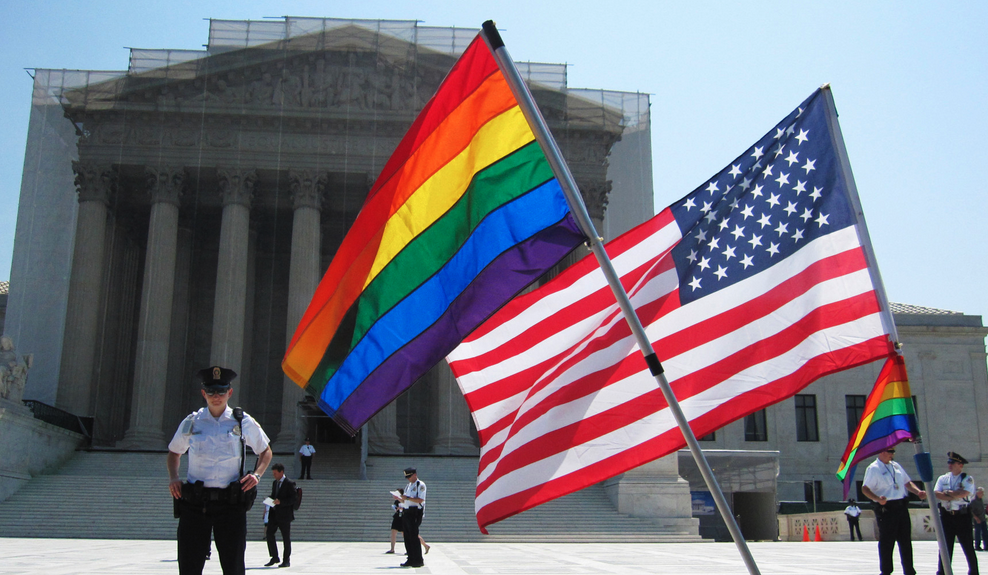On Friday, the Supreme Court announced it would, once and for all, decide two important questions when it comes to gay marriage. First, are states required to issue marriage licences to same-sex couples? Second, do states that don’t give licences to same-sex couples have to recognize same-sex marriages performed in other states? The Supreme Court is hearing the cases from Michigan, Ohio, Kentucky, and Tennessee. The oral arguments will be heard in April, with a decision being made before the Court goes into recess in June.
These are the basic questions when it comes to same-sex marriage, does a state have to grant you a licence to marry, and do other states have to recognize your right to marry.
With the make up of the current court, I feel as though the Court will say that other states must recognize same-sex marriage license in all states. I don’t know if the Court will say that all states must give marriage licences to same-sex couples.
Article IV section 1 of the US Constitution says:
“Full faith and credit shall be given in each state to the public acts, records, and judicial proceedings of every other state. And the Congress may by general laws prescribe the manner in which such acts, records, and proceedings shall be proved, and the effect thereof.”
So under the full faith and credit clause, all the marriages should be recognized state to state as legal and valid. I hope that the Court will be willing to do what is fair. Because voting on equality makes no sense to me.



























